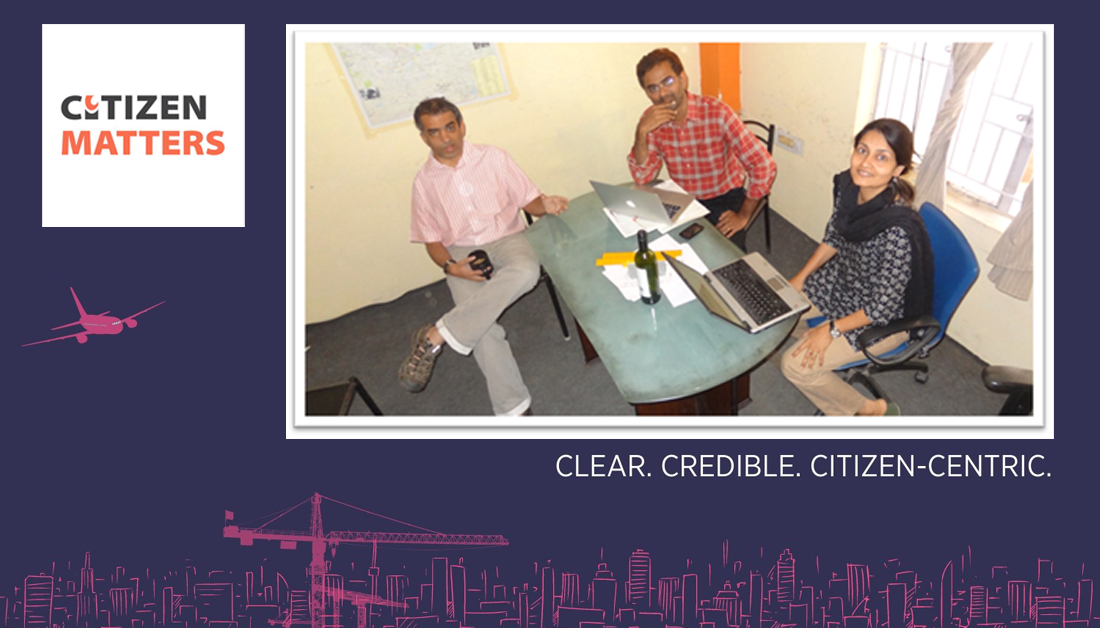Local Journalism Project Case Study: Citizen Matters (India)
The backstory:
Launched in 2008 by Meera K and Subramaniam Vincent, Citizen Matters (CM) aims to fill a local news gap for Indian cities through fusing community journalism and local investigative work. The digital news site engages citizens by helping them understand that change is possible, and sharing the knowledge that can guide them to take action.
Audience:
The paper has three chapters, in Bengaluru, Mumbai, and Chennai. Coverage has expanded to other areas such as Delhi, Hyderabad, and cities such as Pune and Ahmedabad. Citizen Matters aims to balance the voice of the already vocal middle-upper classes with the needs of marginalized communities, mostly focusing on issues affecting the daily lives of urban residents.
Value proposition:
In a magazine format, Citizen Matters delves into systemic, local, and hyperlocal issues, which deviates from the Indian media’s typical focus on national news. Citizens are able to contribute to the paper with the oversight of the editor. The website functions as a platform for civic participation.
The organization’s strength is the audience, people who are engaged in civic issues in their community – for Citizen Matters, they are the “changemakers”. Having them as both readers and contributors creates a feedback loop and ensures impact on the ground.
Product and distribution:
Citizen Matters offers various formats of articles, each with its own purpose. Its “explainers” deconstruct government policy, schemes, and civic processes while “solutions” provide evidence-based articles offering ways to overcome local problems. Other formats include citizen journalism, and in-depth reports.
Their online stories are distributed through their website; their newsletter, which reaches 12,000 people; and social media platforms, which have reached just under 33,000 followers across all channels (Instagram, Facebook, Twitter, and Linkedin).
Most readers follow the stories on Citizen Matters’s website directly or are directed from Google Search or Google News; some stories are republished on other media platforms. Apart from social media, readers can elect to receive a broadcast of the stories published on a given day via WhatsApp or Telegram as well. YouTube is used to post video interviews and webinars.
The team:
Meera K is the managing trustee who oversees the direction of the paper. There is one editor for each city. Reporting is done by a team of seven professional journalists across the three city chapters, by various freelancers as well as by volunteer citizen journalists. One team member assists with technology and operations. A community engagement officer is in charge of posting and monitoring social media for potential leads.
Business model:
Citizen Matters functions as a non-profit through the Oorvani Foundation. Funding comes from retail donations, grants contributions from high net worth individuals, foundations, and other sources such as philanthropists. Citizen Matters’s collaborative approach has enabled it to keep the costs of investigative storytelling down.
Trust/Misinformation:
Citizen Matters takes the time to research its stories, and has a reputation of credibility in the cities where it operates. Throughout the pandemic, the outlet produced explainers that could warn readers of misinformation and could ensure they were aware of the veracity of the news they were consuming.
The future:
Citizen Matters is building a strong community, both on social media and offline through events and workshops. The team plans to improve the website in the near future.
Ask them about: Civic participation
In their words:
Meera K
“Our journalism catalyses better cities by empowering the public with the knowledge and understanding to become active and engaged citizens.”
“Seeing the city unable to deal with sudden explosive growth, I wanted to do something about local issues. I had questions like: why is this flyover project taking so long? Why is the garbage bin overflowing?”
“Editorial stewardship is critical to ensure that what citizens develop is journalism — and not just a rant like on social media. An editor facilitates this process — we handhold and mentor community reporters to tell the story with truth, accuracy, and fairness.”
“We have built a collaborative approach that engages citizens deeply, helping them understand change is possible, and sharing the knowledge that can guide them to take action. Citizens bring in lived experiences, understanding of ground reality, and practical insights. Professional journalists are critical for their skills in digging out information, and accessing the right sources, providing multiple perspectives.”
Meenakshi Ramesh
“One of the learnings is to give equal importance to all voices. Another one is to be always learning… it’s a very slow journey and you have to (be optimistic), every morning you have to have at least 5 percent more optimism than pessimism.”
“ It takes time. The Mumbai chapter is only a year and a half old. And there were days when we used to say, oh my God, nobody’s reading our articles and what are we doing here? But Mumbai is a big city. It’s a complex city. And slowly we see traction.”
Source for information and views in this case study: Interviews with Meera K, co-founder, Citizen Matters; Meenakshi Ramesh, Citizen Matters, Chennai. Meera K and Meenakshi Ramesh are trustees of the Oorvani Foundation, the nonprofit that runs Citizen Matters.
This story is part of IPI’s Local Journalism Project. The publication of these case studies – part of IPI’s wider work mapping, networking and supporting quality innovative media serving local communities – is supported by the Friedrich Naumann Foundation.



